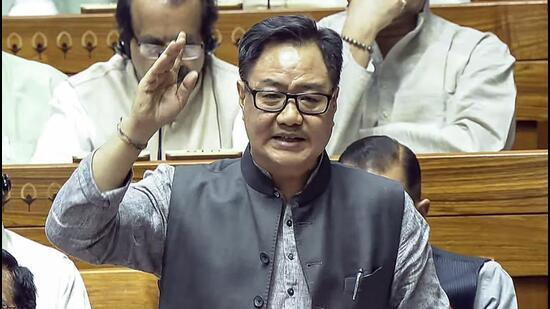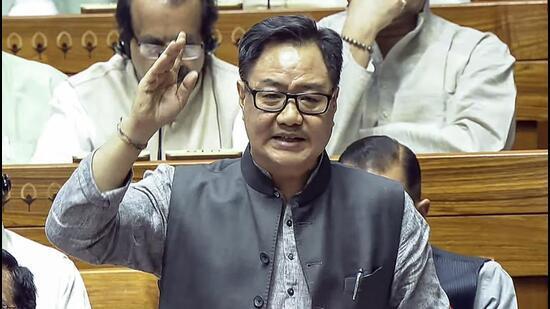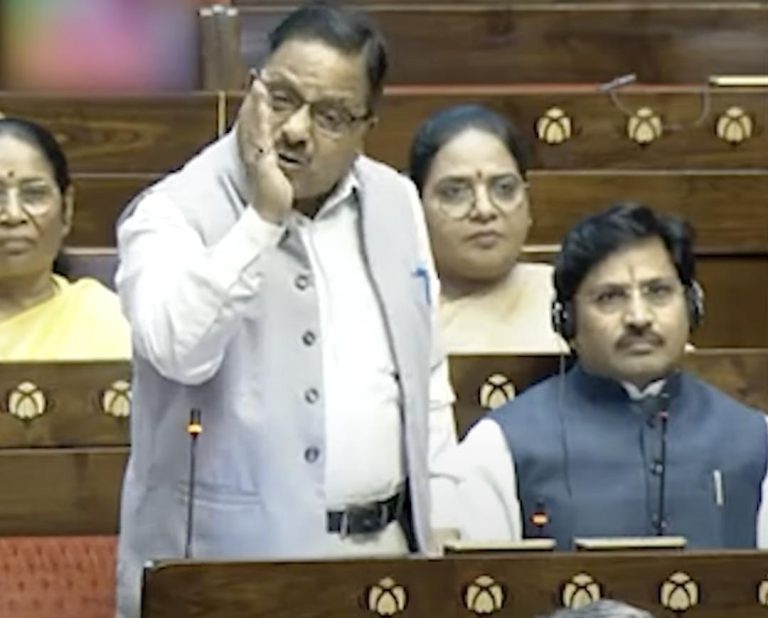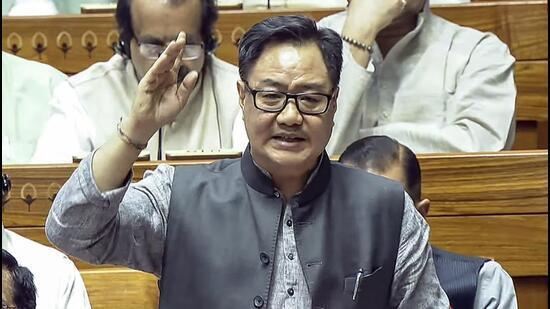
Opposition Creates Confusion & Leaves House: Rijiju in Rajya Sabha
In a recent development in the Rajya Sabha, Union Minister Kiren Rijiju criticized senior members of the Opposition for creating confusion and raising issues in the House, only to leave without listening to the replies. This controversy erupted during the discussions on the Waqf (Amendment) Bill.
The minister, while addressing the House, expressed his disappointment at the lack of maturity displayed by the Opposition members. Rijiju pointed out that instead of engaging in constructive debates and staying back to listen to the government’s perspective, the senior members of the Opposition chose to create unnecessary controversy and then abandon the House.
One of the main points of contention was raised by MP Kapil Sibal, who drew comparisons between the properties owned by Waqf bodies and those of other religious organizations. Sibal’s comments were seen as an attempt to stir up controversy and create confusion among the lawmakers.
Rijiju took strong exception to Sibal’s remarks, stating that such comparisons were unfair and unnecessary. The minister emphasized that the Waqf (Amendment) Bill was intended to streamline the functioning of Waqf boards and ensure that the funds allocated to them were used for the betterment of the community.
However, Sibal’s comments had already created a stir in the House, and his fellow Opposition members joined in, raising further questions and criticisms. Rijiju, however, remained unimpressed, pointing out that the Opposition members were more interested in scoring political points than engaging in meaningful discussions.
“The Honourable member (Kapil Sibal) is creating confusion by comparing properties of Waqf bodies with those of other religious bodies. It is not fair to compare apples with oranges. Waqf bodies are not a commercial entity, they are meant for social and charitable purposes,” Rijiju said.
The minister’s remarks were met with strong reactions from the Opposition benches, with many members accusing Rijiju of being biased and trying to suppress the truth. However, the government members remained steadfast in their support for the Waqf (Amendment) Bill, arguing that it was necessary to clean up the system and ensure transparency in the functioning of Waqf boards.
The debate on the Waqf (Amendment) Bill highlights the ongoing power struggle between the government and the Opposition in the Rajya Sabha. The ruling party has been accused of using its majority to push through controversial bills, often without allowing for meaningful debate or discussion.
In this context, Rijiju’s criticism of the Opposition members is seen as an attempt to deflect attention from the government’s own shortcomings. Critics argue that the government is more interested in silencing the Opposition than engaging in constructive debate.
On the other hand, the government maintains that the Waqf (Amendment) Bill is a necessary step towards reforming the system and ensuring that Waqf funds are used for the betterment of the community. The government has also accused the Opposition of being opposed to any reform that may impact the interests of certain sections of society.
The controversy surrounding the Waqf (Amendment) Bill highlights the ongoing challenges facing the government in the Rajya Sabha. With the Opposition in disarray and the ruling party holding a majority, it is difficult for the government to engage in meaningful debate and discussion.
In conclusion, the recent controversy in the Rajya Sabha serves as a reminder of the need for greater maturity and responsibility in legislative debates. While the Opposition has a right to raise questions and criticisms, it is equally important for them to engage in constructive debate and stay back to listen to the government’s perspective.






